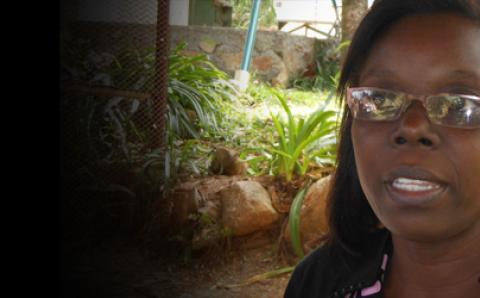There has been much controversy on the Internet, in the news media and even in the Letters section of The Banner on how Christians should respond to some recent scientific discoveries. In just the last few months, we’ve seen the discovery of a 68 million-year-old dinosaur in Alberta, new evidence from the South Pole of primordial gravitational waves from 13.8 billion years ago, and a planet about the size of Earth found by the Kepler spacecraft in the habitable zone of a red dwarf star 490 light years away.
As Reformed Christians, should we welcome these scientific discoveries, or do they attack the basic tenets of our faith?
Article 2 of the Belgic Confession beautifully describes God’s general revelation (the universe) and special revelation (the Bible) as two books written by the same author. As Reformed Christians, we confess that God is infallible in both revelations and that God does not contradict himself.
We also believe that God does not try to deceive us by creating starlight in transit or fossilized remains in the earth. Nor does God hide deposits of pre-processed coal, oil, and natural gas in the proper geologic strata. God is the Lord of heaven and earth. He is the creator of the natural and the supernatural, and he is both immanent—that is, in the universe—and transcendent—surpassing both space and time.
When there appears to be a conflict between these two revelations it must be in our interpretation. Even careful, conservative, and sincere theologians and scientists make mistakes. When pride and politics enter the mix, from Galileo to global warming, an honest debate can quickly become more about doctrine and ideology than about the actual facts.
The Bible is God’s holy and divine Word, but it’s not a book of science. It can’t be. The Bible is full of miracles and supernatural events. Science, on the other hand, is the study of natural laws with the goal of predicting what should happen in an experiment and then empirically testing those hypotheses. The realm of science is limited to the natural laws of the universe and therefore it excludes miracles. By definition, a miracle is a violation of the universe’s natural laws that produces an unexpected result. As such, scientists are not allowed to insert miracles into their solutions. Similarly, if a patient dies on the operating table, surgeons will not expect that patient to be resurrected a few days later with all of his wounds healed.
In the Christian life, science and religion are not separated—but we need to make a clear distinction between them.
Ninety-nine years ago, Albert Einstein’s theory of general relativity predicted gravity waves. Recently a team of scientists in Antarctica found evidence that these waves occurred less than a trillionth of a second after the Big Bang. Even though they’ve studied their evidence for years, they know that different teams of scientists, with different equipment and with a different hypothesis, will try to prove or disprove their discovery. Science has to explain the age of the universe without resorting to miracles. But as Reformed Christians, we know that God lives in and above space-time, and that he used both natural and supernatural means to create the universe.
Reformed Christians believe that Christ has both a human nature and a divine nature. We certainly distinguish between these two natures, but we cannot separate them. The same is true for science and theology. Astronomers have already found an earth-size planet in a habitable zone around a distant star. Next we’re likely to find an earth-like planet with liquid water. What will the discovery of a twin earth mean to our Reformed faith? What have we learned from Galileo? We’ve learned that science does not correct the Bible, it corrects a misinterpretation of the Bible.
Is the Earth 6,000 years old or 4.54 billion years old? The honest and humble answer is that we don’t know. The Bible clearly tells us the age of Adam when he died, but it does not clearly tell us the age of the Earth. The dominant scientific theory is that the Earth is very old, but some Christians believe that the Earth just appears to be old and that it’s actually much younger.
Archbishop James Ussher confidently calculated that the world began on October 23, 4004 bc. Similarly, Harold Camping confidently predicted the world would end on ad May 21, 2011. Both men used the Bible as fodder for their speculations. Adding something to Scripture to support a personal position denies the authority of the Bible just as much as subtracting something from Scripture that you’d like to ignore.
What is 13.8 billion years to God? For an immanent God existing in space time who experiences a thousand years as a 3-hour watch in the night (Ps. 90:4), 13.8 billion universe years is about 4,723 God years. For a transcendent God (existing outside of space time), 13.8 billion years is still less than a trillionth of a second. The dimensions of time and space are much larger than we can imagine—just like God.
How can Reformed Christians develop a viewpoint that is scientific and also biblical? The Reformation has given us insights that allow us to discriminate between good theology and bad theology. Many of those insights also work to distinguish good science from bad science.
Many institutions of higher learning have observatories that are open to the public. Go to an observatory and look at the Whirlpool Galaxy cataloged as M51a. When you put your eye to the eyepiece, the scientific explanation is clear. The very same photons that were emitted from this galaxy have travelled unimpeded for 24 million years across 100 trillion miles of space and have at last ended their perilous journey; their final resting place is your retina.
It’s a humbling and praise-worthy experience!
Science can provide incredible experiences for you and your children. You can visit a fossil site and hold a 30 million-year-old fossil with amazing physical detail in your own hands. Or hike into a meteor crater that is 50 thousand years old, or marvel at the craftsmanship of sculpted mammoth teeth or cave paintings that are over 30 thousand years old. Visit a science and engineering expo where you can see, touch, and use the latest technology.
Our parents and grandparents lived in a world where science was “on the fringes” and local, close-knit groups were the social norm. Our children live in a world where science is mainstream, and they must engage the world with knowledge of science, technology, engineering, and math.
Young Christians today need a strong and positive engagement of science within a context of faith. So let’s leave behind the subjective dogmas of yesterday and any lingering irrational fear of new discoveries.
Related:
The Christian Reformed Church’s position on Creation and Science
We Need Not Fear the Dinosaur
- Buurma suggests that the Bible is God’s Word, but it is not a book of science. As Christians, how do we draw the lines between science and faith?
- “Is the Earth 6,000 years old or 4.54 billion years old? The honest and humble answer is that we don’t know,” says Buurma. How much does it matter?
- Do you agree with the author that we need not fear for our faith in the face of, for instance, the recent dinosaur discovery in Alberta dated by scientists as 68 million years old? Why or why not?
- “Young Christians today need a strong and positive engagement of science within a context of faith.” Why is the topic of origins of such importance, especially for young people?
About the Author
Jake Buurma is vice president of operations for a nonprofit standards organization. He is a member of San Jose (Calif.) Christian Reformed Church.









